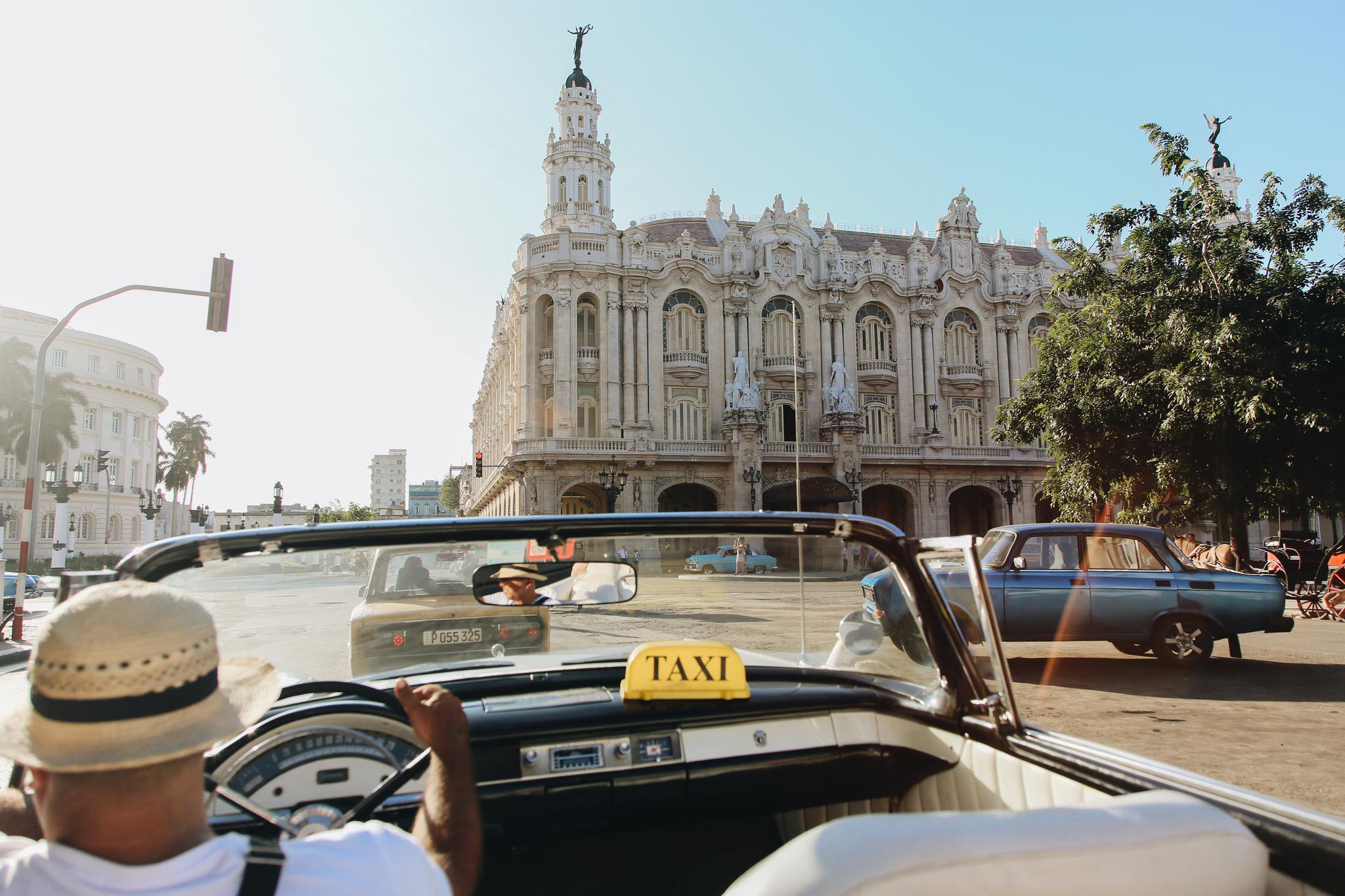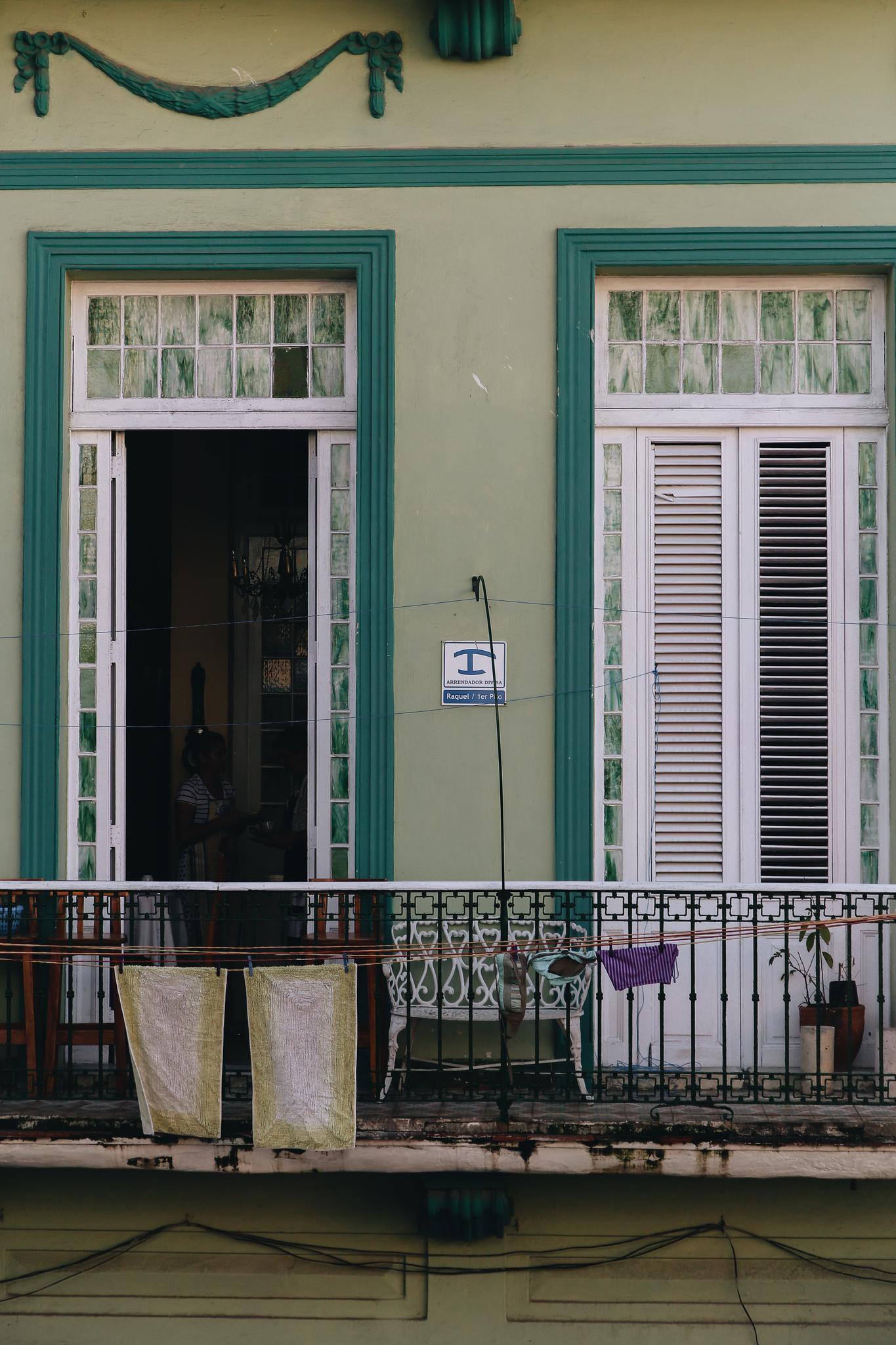Revolutionize the Revolution
A look back at Cuba in 2017 shows a nation divided about its past and present -- all reflected in the current unrest
July 2021
The recent anti-government protests in Cuba are the largest since the 1990s when Cuba went through the so-called “special period” after their main patron, the Soviet Union, dissolved and stopped providing economic support. An economy hit badly by Covid -- Cuba’s tourist sector is a major source of foreign currency -- and high inflation are some of the major causes of the current discontent.
The crisis of 2021 prompted me to review my travel journals from the visit my wife and I took to Cuba in August 2017. We stayed in local homes and took long-distance taxis. Most of our hosts and drivers -- some pro-government and others virulently anti-government -- graciously shared their opinions with us. A small number of people did not want to talk politics but were surprisingly the exception.
Below are a number of vignettes of the Cubans with whom we spoke. For their safety, I have changed names.
Jose
Jose’s father was a foreman on a plantation before the 1959 Cuban Revolution which swept Fidel Castro’s communist government into power. Labeled an ally of the landowning class, Jose’s father spent twenty years in prison. Unwilling to live under a regime which imprisoned him, he left within a year of his release for the United States. Jose was a toddler when his father was imprisoned; he saw his dad for the short period between his release from prison and his departure to the United States.
Jose’s daughter also left and lives in Canada. The departure of Jose’s family is both a blessing and a curse. On the one hand, he rarely sees his family. His father has not returned to Cuba since his departure and his daughter only returns every few years. Jose himself has never left Cuba.
On the other hand, having family members abroad brings benefits. The Cuban government controls the car market; as such, the lack of competition leads to outlandish prices. Jose’s car is 20 years old and cost 30,000 dollars. In a country where doctors make under a 1,000 dollars yearly, buying a taxi is functionally restricted to those with capital sources from abroad. With the money Jose’s father and daughter sent Jose started his taxi business.
Jose exemplifies one of Cuba’s biggest contradictions. Jose despises the regime; during our three hour ride, he described the government as a corrupt and inefficient machine unable to provide basic necessities for its citizens. Moreover, the regime deprived him of a father. However, thanks to his father’s opposition and subsequent exile Jose himself is able to live reasonably well.
While Jose is forcefully critical of the government, he was in no mood to protest. “Protesting is expensive,” he says. You can lose your liberty and livelihood. Better to keep what you have and press on. As he dropped us at our accommodation, we gave Jose our bottle of Advil. Basic medicines as such are hard to obtain in Cuba. Driving a taxi gives him chronic back and joint pain.
Of the four guest houses in which we stayed, not coincidentally three were run by people who had relatives abroad. The one person who did not have relatives abroad, Francisco, was the most ardent supporter of the revolution.

Francisco
“My dad says, ‘Francisco, you are rich!’”
Francisco explains that before the Cuban Revolution, his father could not afford shoes and did not go to school. Francisco’s father’s family were poor peasants who worked in western Cuba’s tobacco fields. Francisco’s father now looks at Francisco’s shoes, his university education and guest house for foreign tourists and marvels at the change in life after the 1959 Revolution.
When I ask Francisco about people who call the government oppressive and corrupt, he brushes this aside. “People will always complain about something. For most people, the Revolution has greatly helped them. Look, go up to any child in Cuba and ask them if they lack anything. Ask them if they are happy. Have you ever seen a child begging on the street in Cuba?” I refrain from telling Francisco how just two days prior we stopped in a remote village where the children had no shoes, wore tattered clothes, and surrounded us foreigners as they begged for money. For Francisco, the Revolution has been good; I do not want to look like an anti-Castro Yankee imperialist. I let Francisco continue with his story.
Francisco built his guest house alone without foreign capital. He slowly built one room before moving on to the second. His own room, to the side of the guest house, is far humbler than the guest rooms. It has no windows, a concrete floor, a bed on the floor and a fan to keep him cool. The guest bedrooms all have air conditioning, windows, finished wood floors, bed frames and personal bathrooms.
Francisco also kindly introduces us to his brother and sister-in-law who live with Francisco's elderly father. Their home, too, is humble; it is built with thin wooden planks which are the only barrier to the outside. Their home, like Francisco’s, has no photographs. When I return home, I print photos I take of the family and send them to Francisco.
Compared with my idea of a materially rich life, Francisco and his family’s life falls short. However, their basic clothing, shelter and educational needs have been met which is a major improvement from before 1959. Moreover, the family is spiritually rich. They smile and they hug. Francisco’s sister and children also stop to say hello while we are at Francisco’s. They, too, live close. In addition, they are proud of their country.
The aforementioned “Special Period” in the 1990s brought major shortages of all goods. Rather than a memory of pain, this decade is a memory of pride for Francisco. “This time period is an example of how resourceful us Cubans are. We learned never to throw anything away. We reuse every piece of plastic, every bottle, anything you cannot eat. We learned to make our basic necessities with what we have here. For example, in the 1990s local women started making soap out of mountain plants and herbs.”
We were in Cuba at the beginning of the Trump administration. President Obama had previously loosened restrictions on American travel and investment in Cuba which created great hope for the Cuban economy. Trump was in the process of walking back these changes; I ask Francisco whether he is worried. “Look, I just told you about how we persevered in the 1990s after we lost Russian aid. We will do it again. The Cuban people can take whatever is thrown at them,” he says with a smile.
The Cuban people are indeed creative. In Havana, I visit a government store that provides free or heavily subsidized seeds that citizens can plant in community gardens to supplement their diets. The government in Cuba gives each citizen a small amount of food per month which for most is not sufficient. Some, like Francisco and Jose, start their own businesses for tourists and buy food to supplement the government rations. Others, however, visit the government seed banks. And others are given special privileges by the government because of their position within the communist party.

Ernesto and Elisa
From the apartment’s balcony you can see the Caribbean and the hotel where Godfather 2 was filmed. This is prime real estate in Havana and Ernesto’s family got it thanks to their rank within the communist party. Ernesto’s grandma and grandpa both held positions within the communist party.
Ernesto’s family converted part of their apartment into guest rooms with private bathrooms. Francisco built his rooms from the ground up using local materials; Ernesto’s family apartment would require significant renovation given it is part of an old existing structure which would likely require significant capital. Ernesto’s grandma Elisa has Spanish citizenship thanks to her father, who immigrated from Spain. It is possible that Spanish relatives invested capital into building their guest rooms; it is also possible Ernesto and his family have other access to capital through their communist party affiliation. The communist party owns all large enterprises in Cuba, from food production to the large hotels that service tourists en masse. To not be rude, I refrain from asking the capital source for their business. (As of 2017, Cubans were only allowed to own small businesses in the hospitality industry, like guest houses, restaurants and taxis. As of 2021, there appears to be some economic liberalization in process.)
I do ask Ernesto and Elisa what the future holds for the Revolution. Strictly speaking, the Revolution was in 1959; however, the Revolution has come to symbolize the communist government in its entirety. At the top of every edition of the official party newspaper it states the year of the Revolution -- in 2017 it was the 58th year of the Revolution. The Revolution is referenced in articles and in street propaganda. It is as if the Revolution is a never-ending process destined to last as long as the communist party is in power.
If near universal literacy and access to medical care has been achieved, what more can the Revolution provide, I ask. This is my way of asking if the communist government can still be counted on to provide better living standards. Ernesto either does not understand the subtlety of my question or chooses to avoid engaging in the subject. He simply says, “The Revolution will continue to revolutionize itself. We are always in the process of revolution.” Elisa, perhaps more attuned to what I am aiming for in my question, says that “Raul [Castro, then the leader of Cuba] is doing the best he can. I believe in him. He will find a way.”
And better living standards are necessary for most Cubans. While in Havana, I go to a clinic to investigate how things are for doctors. Cuba is famous for having well-trained doctors who are poorly paid. One doctor tells me the pay is terrible -- 50 dollars a month -- and there is no medicine. He looks worn down. “Without medicine, what can we do?” he asks.
Since 1959, Cuba has expanded access to medical care to all its citizens. The doctor says he is responsible for a specific neighborhood and has an ongoing relationship with the residents. Residents can come to him when there is an issue but he also does regular home visits for all whether they have an existing health condition or not. In the countryside, I see a nurse in the middle of a home visit. I ask the woman if she is happy with the care in Cuba. She says, “Yes, the nurses and doctors treat us very well.”
As such, access to care is free and easy; however, access to medicine is not. Care without medicine is better than no care at all but still falls far short of what a truly well-rounded healthcare system would offer.
How Cubans judge the 1959 Revolution depends on what they gained or lost in the process. If one remained a supporter of the regime through the difficult 1990s -- like Francisco, Elisa and Ernesto -- one is likely to remain a supporter today.
The question is whether those who oppose the government are willing to risk protesting in a police state where it may be “expensive” (to use Jose’s words). As an American who operates tours to Cuba told me, “The success of the Cuban Revolution was free health care, shelter and education. The failure was breakfast, lunch and dinner.” The lack of basic necessities is forcing, to play off Ernesto’s words, the Revolution to revolutionize itself or die. What comes next is anyone’s guess.
